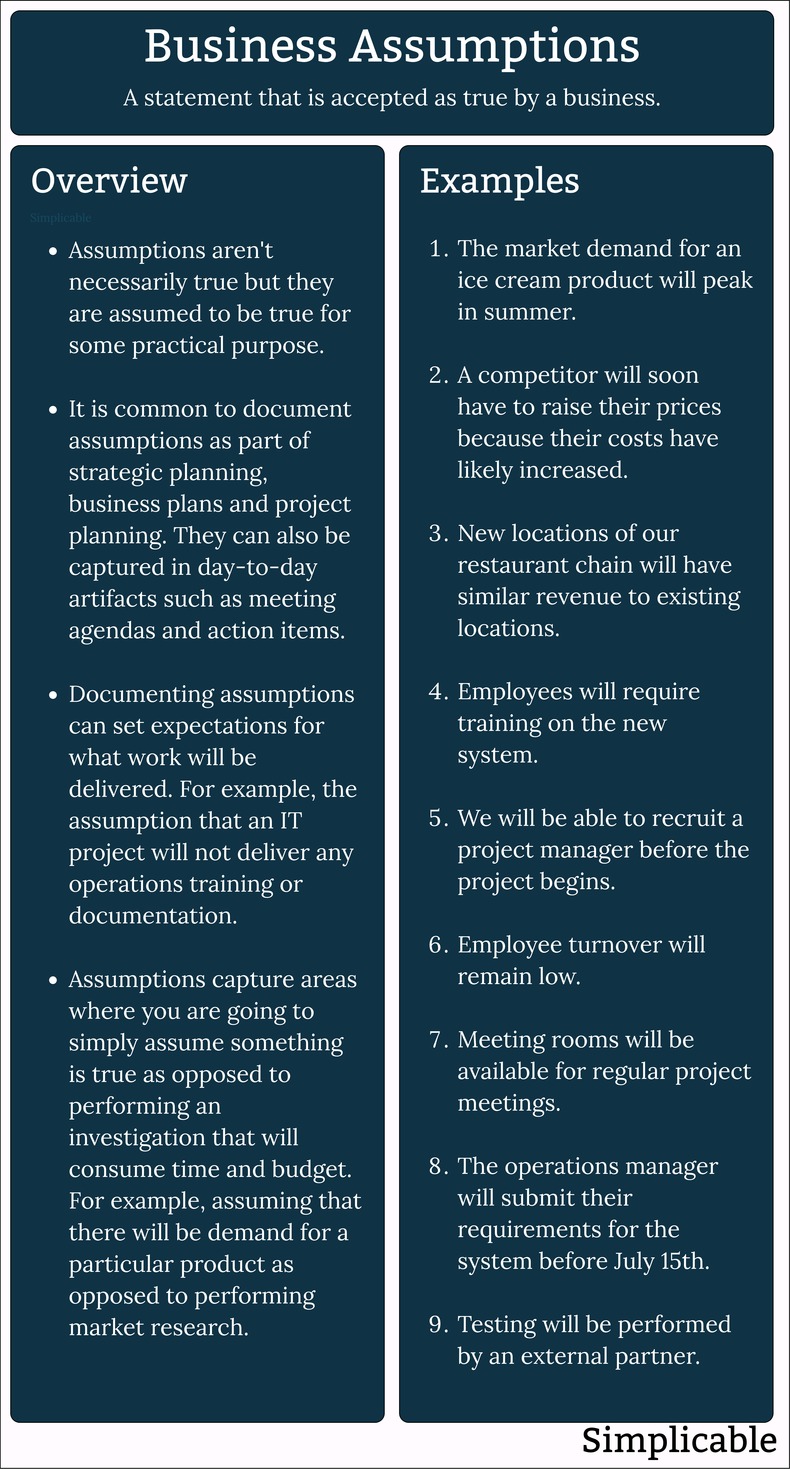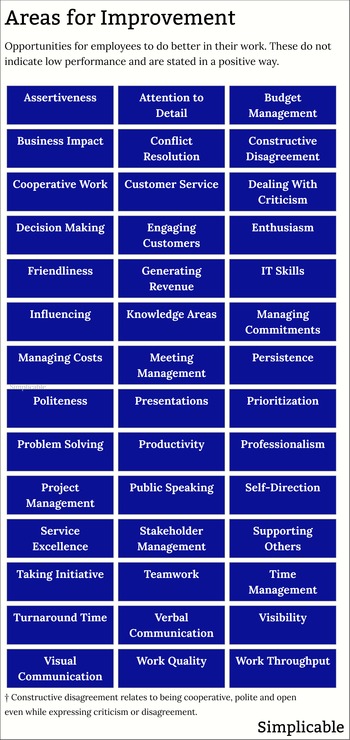
Financial
Basic financial assumptions such as access to capital.Resources
The assumption that key talent will be available and engaged.Schedules
Dates that need to be met for your strategy to succeed. For example, an assumption that you will be able to design a new product within 3 months.Customer
Assumptions about customer needs, perceptions and other factors such as purchasing behavior. This can be included as an assumption even if you have run tests and have strong data.Competition
How competitors or market conditions could disrupt your plans. For example, an assumption that market prices will remain relatively stable. Assumptions are typically required to be both realistic and conservative. For example, if prices are regularly falling by 3% a year, an assumption of 4% or 5% might be appropriate.Technology
Technology assumptions such as the feasibility of a technology or its success in the market.Marketing
Marketing assumptions such as the ability to attract channel partners.Know-how
The assumption that you will be able to develop new business capabilities and know-how as an organization. For example, the assumption that you can learn to manufacture something when you're never manufactured anything in the past.Facilities & Infrastructure
The assumption that you will be able to procure facilities such as office space and infrastructure such as an adequate power supply from a grid.Procurement
The ability to find required supply partners and procure required machines, devices, supplies, parts and materials in a timely and cost effective manner.Economic & Political
Assuming a stable economy and political environment.Interest Rates & Exchange Rates
If you perform any calculations using assumed interest rates and exchange rates, state the assumed rate.Compliance & Regulatory
Assumptions about laws, regulations, standards and related administrative processes. For example, the assumption that you will have a required license approved.Legal
Legal assumptions such as the anticipated outcome of a legal process.Overview
Business assumptions are statements that a business holds true for some practical purpose. These are used to shape strategy, planning, tasks and activities and to set expectations for what will be done and what is out-of-scope.
Discussion
In some cases, brainstorming assumptions leads to new ideas and improvements in strategy. The process of documenting assumptions can also have value in identifying risks.| Summary: Business Assumptions | ||
Type | ||
Definition (1) | Things that you assume to be true for the purposes of developing a strategy, making decisions and planning. | |
Definition (2) | The process of managing uncertainty by choosing reasonable assumptions as a basis for strategy, decision making and planning. | |
Related Concepts | ||


















